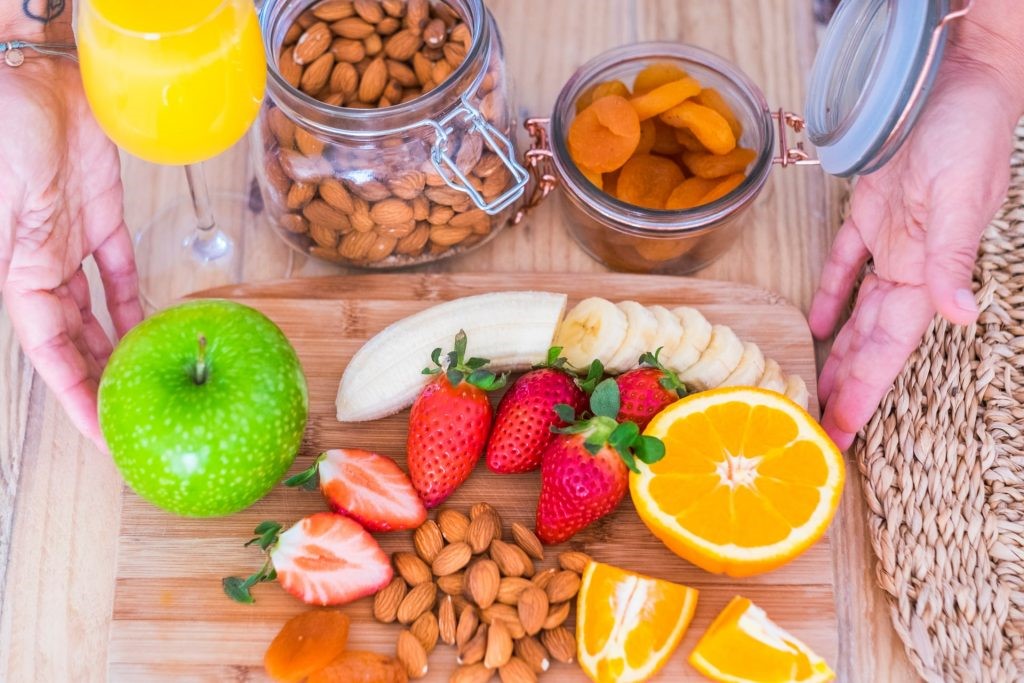
Mediterranean diet: getting back in shape relies on anti-ageing foods
The Mediterranean Diet remains a benchmark diet, with ‘anti-ageing’ foods being the main allies of health and beauty
he Mediterranean Diet model, recognised by UNESCO as a cultural heritage of mankind, is based on seasonal local produce
It is also a lifestyle to sustain biodiversity, preserve flavours, recipes, traditions.
A dietary model that ensures all the nutrients necessary for our health, psychophysical wellbeing and beauty and, associated with physical activity, is the first weapon of prevention for obesity, overweight, chronic degenerative cardiovascular diseases, diabetes and oncological pathologies.
But that this eating style is also an elixir of youth is perhaps little known.
And it is no coincidence that we are talking about it at the end of September, the month of returns and good intentions, when following the proactive momentum of summer, we prepare to face autumn with a great desire to get in shape.
The skin reflects our state of health and is one of the main targets of oxidative stress, which plays a primary role in the cellular ageing process. Including antioxidant foods full of vitamins in the diet, capable of performing protective and beauty functions, is the first step in preventing cellular ageing.
Toning, moisturising and increasing the elasticity of the skin, reducing wrinkles, strengthening nails and hair, and fighting cellulite is one of the many benefits of our Mediterranean Diet.
Mediterranean Diet, the anti-ageing foods allied with health and beauty are:
INTEGRAL CEREALS and LEGUMES: together with other foods of vegetable origin rich in protective substances such as Vitamin E, A, B, C, folic acid, phytoestrogens, proteins, fats, mineral salts. Their low glycaemic index decreases the production of pro-inflammatory hormones, responsible for irritation and acne. The combination of wholegrain cereals and legumes also has a prebiotic action, with the proliferation of good bacteria that are also friends of the skin.
FISH: is one of the most complete foods because it is rich in proteins, fats, mineral salts such as phosphorus, iodine and iron. But the nutritional properties of fish, especially oily fish, are to be found in the omega-3, which promotes tissue trophism and combats skin dryness, and in the great vitamin supply, thanks to group A and B vitamins, especially B6, which is precious for the health of the nervous system.
FRESH FRUIT, SEEDS and VEGETABLES: bringing the colours and scents of the Mediterranean basin to the table is a gift for health, beauty and the palate. The credit for this goes to anthocyanins, molecules that determine the red to blue colouring of fruit and vegetables and can help prevent cellular ageing, and omega 3-6 fatty acids that are essential for maintaining the proper functioning of cells and the circulatory system, making the skin naturally luminous and elastic. So green light to all the colourful fruit and vegetables in season!
Not only sacrifices but also a few ‘vices’: a glass of wine and a square of dark chocolate a day
WATER and RED WINE and CACAO: according to the principles of the Mediterranean Diet it is important to drink at least 1.5 litres of water a day to allow the whole body to hydrate properly and thus prevent unwanted water retention. Excellent for hydration are also infusions, herbal teas and decoctions to be prepared with Mediterranean herbs such as rosemary, mint, sage, oregano and thyme.
A glass of red wine and a square of dark chocolate rich in flavonoids, which stimulate collagen production and thus improve vasodilation and skin microcirculation, is permitted. This means better-toned and oxygenated skin.
EXTRA-VIRGIN OLIVE OIL: Rich source of Vitamin E, tocopherols, polyphenols and phytosterols. It is the condiment par excellence, if used raw at the table, it boosts endogenous cellular defences, counteracts water loss from the epidermis, is a powerful antioxidant and slows down skin ageing. Many cosmetics on the market exploit its countless properties.
A varied and colourful diet allows us to create tasty and nutritious anti-ageing menus in a single meal: this is the true beauty of our Mediterranean Diet.
Read Also
Emergency Live Even More…Live: Download The New Free App Of Your Newspaper For IOS And Android
Mindful Eating: The Importance Of A Conscious Diet
In Search Of A Personalised Diet
The Diabetic Diet: 3 False Myths To Dispel
Why Is Everyone Talking About Intuitive Eating Lately?
Climate Change: The Environmental Impact Of Christmas, How Significant It Is And How To Reduce It
Holidays Over: The Vademecum For Healthy Eating And Better Fitness
Bloated Belly: What To Eat During The Holidays
Traveller’s Diarrhoea: Tips To Prevent And Treat It
Jet Lag: How To Reduce Symptoms After A Long Journey?
Diabetic Retinopathy: The Importance Of Screening
Diabetic Retinopathy: Prevention And Controls To Avoid Complications
Diagnosis Of Diabetes: Why It Often Arrives Late
Diabetic Microangiopathy: What It Is And How To Treat It
Diabetes: Doing Sport Helps Blood Glucose Control
Type 2 Diabetes: New Drugs For A Personalised Treatment Approach
The Diabetic Diet: 3 False Myths To Dispel
Paediatrics, Diabetic Ketoacidosis: A Recent PECARN Study Sheds New Light On The Condition
Orthopaedics: What Is Hammer Toe?
Hollow Foot: What It Is And How To Recognise It
Occupational (And Non-Occupational) Diseases: Shock Waves For The Treatment Of Plantar Fasciitis
Flat Feet In Children: How To Recognise Them And What To Do About It
Swollen Feet, A Trivial Symptom? No, And Here’s What Serious Diseases They May Be Associated With
Varicose Veins: What Are Elastic Compression Stockings For?
Diabetes Mellitus: Symptoms, Causes And Significance Of The Diabetic Foot
Diabetic Foot: Symptoms, Treatment And Prevention
Type 1 And Type 2 Diabetes: What Are The Differences?
Diabetes And Cardiovascular Risk: What Are The Main Complications
Diabetes: Causes, Symptoms And Complications
Diabetes And Christmas: 9 Tips For Living And Surviving The Festive Season


